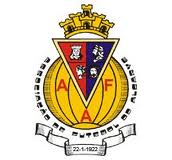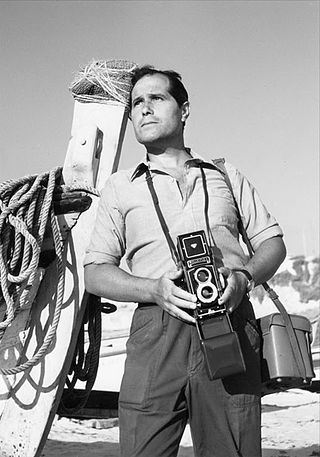
The Algarve is the southernmost NUTS II region of continental Portugal. It has an area of 4,997 km2 (1,929 sq mi) with 467,495 permanent inhabitants and incorporates 16 municipalities.

Lagos is a city and municipality at the mouth of Bensafrim River and along the Atlantic Ocean, in the Barlavento region of the Algarve, in southern Portugal. The population of the municipality in 2011 was 31,049, in an area of 212.99 km2. The city of Lagos proper has a population of approximately 22,000. Typically, these numbers increase during the summer months, with the influx of visiting tourists and seasonal residents. While the majority of the population lives along the coast and works in tourism and services, the inland region is sparsely inhabited, with the majority of the people working in agriculture and forestry.

Faro is a municipality, the southernmost city and capital of the district of the same name, in the Algarve region of southern Portugal. With an estimated population of 60,995 inhabitants in 2019, the municipality covers an area of about 202.57 km2 (78.21 sq mi).

Portimão is a city and a municipality in the district of Faro, in the Algarve region of southern Portugal. The population in 2022 was 60,879, in an area of 182.06 km2. It was formerly known as Vila Nova de Portimão. In 1924, it was incorporated as a cidade and became known merely as Portimão. Historically a fishing and shipbuilding centre, it has nonetheless developed into a strong tourist centre oriented along its beaches and southern coast. The two largest population centers in the Algarve are Portimão and Faro.
The Associação Académica de Coimbra (AAC) is the students' union of the University of Coimbra (UC). Founded in Coimbra on November 3, 1887, it is the oldest students' union in Portugal. It is also the biggest Portuguese students' union belonging to an independent institution, since it represents all the students of its university, who gain automatic membership into the AAC as students of the University of Coimbra.

The Associação de Futebol do Algarve is one of the 22 district football associations that are affiliated to the Portuguese Football Federation. The AF Algarve administers lower tier football in the district of Faro.

Faro District is the southernmost district of Portugal. The area is the same as that of the Algarve region. The administrative centre, or district capital, is the city of Faro.

Algoz is a town and the seat of the civil parish of Algoz e Tunes in the municipality of Silves, in Algarve, Portugal. It has about 3000 inhabitants.

São Brás de Alportel is a town and municipality in the District of Faro, Algarve region, in Portugal. The population in 2011 was 10,662, in an area of 153.37 km². The present Mayor is Vítor Guerreiro, elected by the Socialist Party. The municipal holiday is June 1.

Lídia Jorge is a prominent Portuguese novelist and author whose work is representative of a recent style of Portuguese writing, the so-called "Post Revolution Generation".

São Luís Stadium, also known as Estádio Municipal de São Luís, is a multi-use stadium located in Faro, Algarve, Portugal. It serves as the home stadium for Sporting Clube Farense, a football club based in Faro. The stadium was opened in 1923 and has a seating capacity of around 12,000 spectators.
Faculdade de Ciências e Tecnologia is Portuguese for "Faculty of Sciences and Technology", and may refer to:
Universidade Lusófona de Humanidades e Tecnologias is the largest Portuguese private university, and the main institution of Grupo Lusófona, which administers other universities and colleges in Portugal, Brazil, Cape Verde, Angola, Guinea-Bissau and Mozambique. Promotion of the Portuguese language is seen as a major objective of the institution; students from former Portuguese African colonies pay substantially reduced fees.
Alte is a village and civil parish in the municipality of Loulé, in the Algarve region in the south of Portugal. The population in 2011 was 1,997, in an area of 94.33 km².
Bordeira is a locality in the civil parish of Santa Bárbara de Nexe, in the municipality of Faro. It is strongly associated with its rich history in stone, as well as its traditional New Year's songs/chants and history as the centre of the accordion musicians in Portugal.

Artur Pastor, was a Portuguese photographer.

The Fort Nossa Senhora da Luz, also known locally as Castle of Senhora da Luz is a fort in the civil parish of Luz, municipality of Lagos in the Portuguese Algarve, classified as a Property of Public Interest.

Linha do Algarve is a railway line in the region of Algarve, in southern Portugal, which connects the stations of Lagos to the west and Vila Real de Santo António to the east of the Portuguese region.
David Vinagre Cristina is a Portuguese humorist, stand-up comedian, storyteller, podcaster, radio and television personality, corporate executive, entrepreneur, stock investor and investment consultant, with a PhD on the field of genetics of ageing and specialization in venture capital and private equity investing. Besides his extensive activity on Portuguese radio and television as a humorist, comedian and host, David Vinagre Cristina is the executive director for investments at the Lisbon branch of Fosun International and was investment consultant of Portugal's state-run venture capital and early-stage investing arm Portugal Ventures from 2015 to 2017 and member of government cabinet after has been appointed adviser of the Portuguese Secretary of State for Science from 2011 to 2015 in the XIX Constitutional Government of Portugal.

Fort São Vicente is a military monument in Sagres, in the Algarve region of Portugal. It consists of the remains of a fortification, with a lighthouse inside. It was built in the 16th century to protect a coastal strip and an existing monastery on the site. In 1587 it was destroyed by British privateer Francis Drake, and rebuilt in 1606. In the mid-19th century, a lighthouse was built on the site, which was replaced by a new one in the early 20th century. In the mid-2000s, Cape São Vicente was closed to the public for construction work.


















